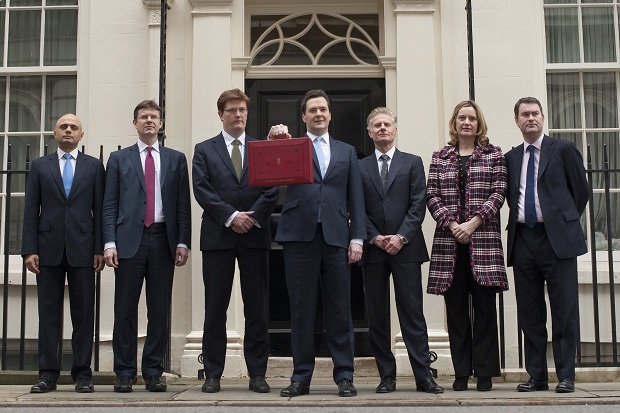The energy debate is in stasis. Everything, it seems, hangs on the contents of the Autumn Statement. EDF has announced a price rise; bills will go up by an average 3.9 per cent, which is considerably lower than the rest of the Big Six. Yet the company made clear that maintaining low prices will depend on George Osborne. A spokesman said:
‘If the Government makes bigger changes to the cost of its social and environmental schemes than EDF Energy has anticipated, the company pledges to pass these savings onto customers. However, if changes to social and environmental programmes are less than anticipated, the company may have to review its standard variable prices again.’
That statement is even more nebulous than it first seems. As the Telegraph reports: ‘industry figures this morning admitted they had no idea what was being planned given rumoured disagreements between Tory and Lib Dem ministers.’
This exchange illustrates the danger of briefing out, in the heat of a political battle, half-formed policies. There is a reasonable chance that the announcements may not cut through; the element of surprise is lost, the energy companies are busy issuing threats and the opposition retains tactical advantage.
Meanwhile, Ed Davey has given a speech to Energy UK, the industry body. Davey emitted a lot of hot-air about the energy companies facing a ‘Fred the Shred moment’; but he did say some interesting things too:
1). He branded Miliband’s price freeze as ‘one of the most irresponsible proposals from a leader of the opposition made in modern times.’
2). He said that the UK needed energy companies to make substantial profits to meet the vast financial demands of the immediate future. But he warned that trust needed to be rebuilt between consumers and providers. He advised that energy companies embrace transparency and show bill payers that their money was not keeping shareholders in silk hankies.
3). He said, ‘The best way to keep bills as low as possible for the long term is to continue to pursue our twin track strategy.’ This implies that, in Davey’s mind at least, there will be no major change in energy policy, which ought to please green voters. It also means that there will be renewed emphasis on improving competition within the energy market to provide better value. Davey was honest to admit that this is a long process.
4). However, he said that it was ‘right’ for the government to review how green levies were funded, but added that we’ll have to wait for Autumn Statement for any major announcement.
5). He said that fracking ‘could also to add to indigenous energy supplies with significant benefits to the economy and energy security’. That might sound like lukewarm support for fracking, but it is support the nonetheless.
PS: Grant Shapps has just added to the debate with this contribution on Buzzfeed. The piece essentially collates a selection of recent Tory press releases on energy policy; it’s not the most thrilling read. That said, I can’t recall so prominent a politician using Buzzfeed before.






Comments